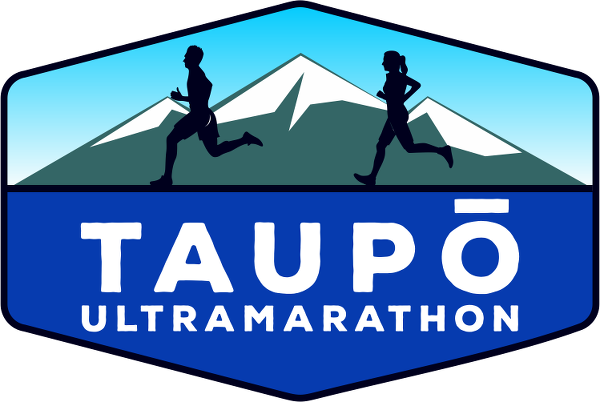
Taupo Ultramarathon 100km:
100km # 6
Date:
October 13, 2018The Taupo Ultramarathon 100km run was an opportunity to experience the Great Lake Trail around Lake Taupo. Lake Taupo is New Zealand’s largest freshwater lake and has a perimeter of approximately 193 km. Much of the 100km run is around the western shores of the lake and utilises the popular Kawakawa Bay to Kinloch (K2K) and Whakaipo Bay to Kinloch (W2K) trails. Like most 100km events, the early start can be challenging. When the alarm goes off at 2.45am, the allure of a 100km run is not especially strong. The first challenge is simply extracting yourself from the comforts of your warm bed. But the necessity to wake up the gastrointestinal system and compulsion to lubricate surges by 3am. Eventually, you work into your morning routine. The comforts of the hotel are left behind in order to catch the 4.30am bus. As is typical with generally introverted ultra runners, every window seat is taken and every aisle seat is free all the way to the back of the bus. In a bid to conserve energy, I plonk myself near the front of the bus and manage to get more sleep. We arrive at the start line prior to the 6am start. The standing around and waiting in the dark and cold is one of my least favourite bits of running. It is bitterly cold and invariably questions of ‘why’ come to the fore. Uncertainties probing for weaknesses. Doubts to test your mettle. I am aptly reminded that it could be worse – “It could be snowing”. I agree – I could also be at work. A karakia (prayer) takes places in the background. Although, I cannot make out the words, hopefully there was mention of pain minimisation and behaved bowels. And then we are off. A stream of headlights moving along the dark single trail towards the Great Lake. Seeking the sun.
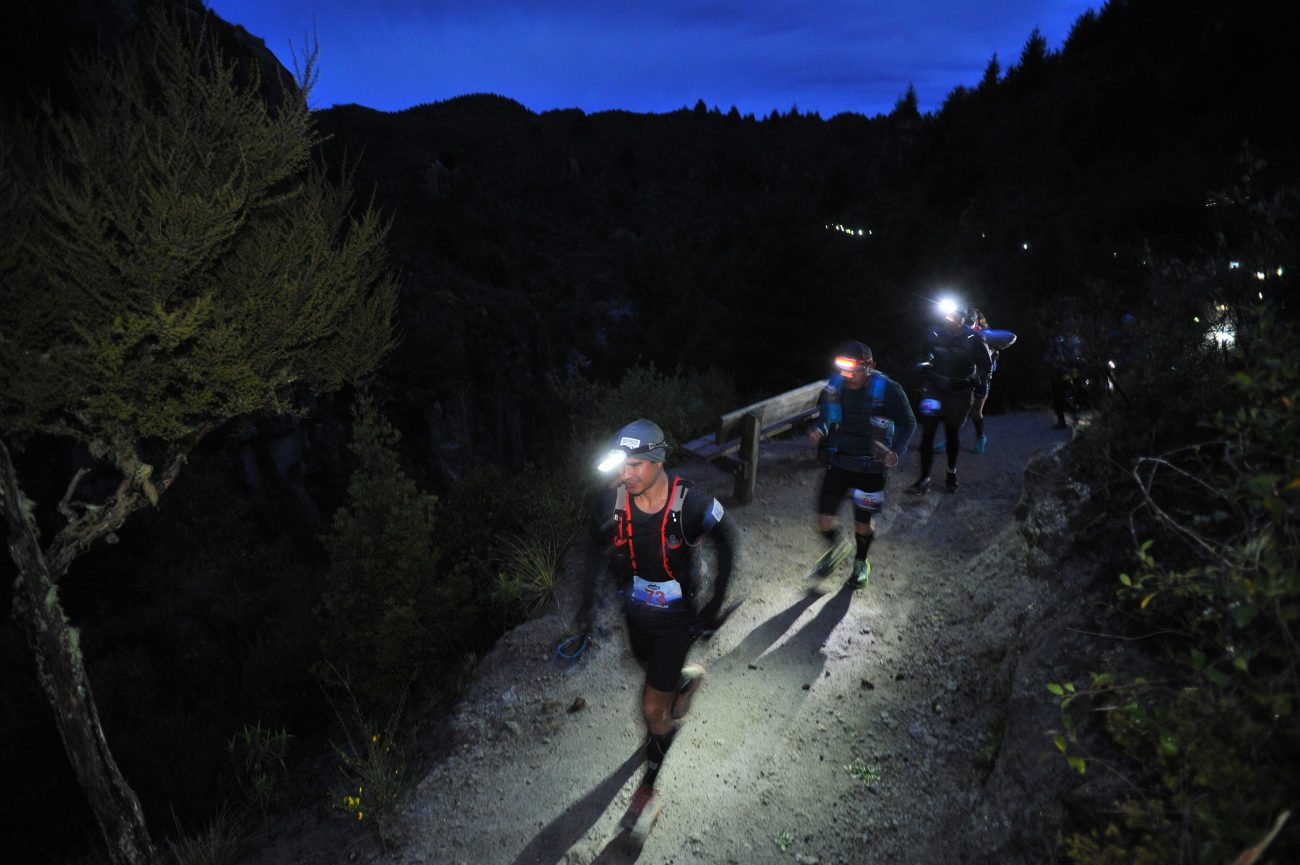
Headlights on at the start of the run
Most 100km runs start in the dark which is fitting for what is a bit of a dark art. I’ve always preferred the marathon distance but got seduced into this run by my friends Dr Andrew Stanley and Dr Rich Newbury (again). It is a distance that can shock the very core of a non runner. The ‘why’ is an extremely good question. Let’s be very clear – 100km runs are painful. You cannot escape from this. It is part of the territory and intimately related to the attraction. My personal view is that the 100km distance is no more painful (with respect to pain intensity) compared to a marathon. All runs start to become challenging and uncomfortable after the 30km / 3-4 hour mark. The main difference between a marathon and 100km event is the duration of time that you need to cope with this discomfort. In a marathon, after 30km, you need to ‘push through’ the last 12km. In a 100km ultramarathon, after 30km, you need to ‘survive’ the last 70km. And for me, that may be the attraction of this distance. It strips away the layers of vanity and pretence that the modern day world dresses us in. It taps into the very essence of our identity. The 100km distance looks deeper than skin, subcutaneous tissue, muscle, and fascia. It provides a window into the human soul. A portrait of the inner self. When things get tough as they invariably do during a 100km distance, are you true to yourself? Do you give up? Do you seek to blame others? Do you add layers to cover your insecurities? Do you buy your way out of hardship? Do you rely on status? The 100km distance will rock your fragile insecurities and doubts. It taps into our primitive survival mechanism and reminds us that we are all vulnerable. Vulnerable to our own expectations. Vulnerable to failure. The 100km distance teaches you how to accept yourself and how to cope in a material world full of modern day stressors. The 100km distance teaches you how to ‘survive’. It teaches you how to be confidently vulnerable.
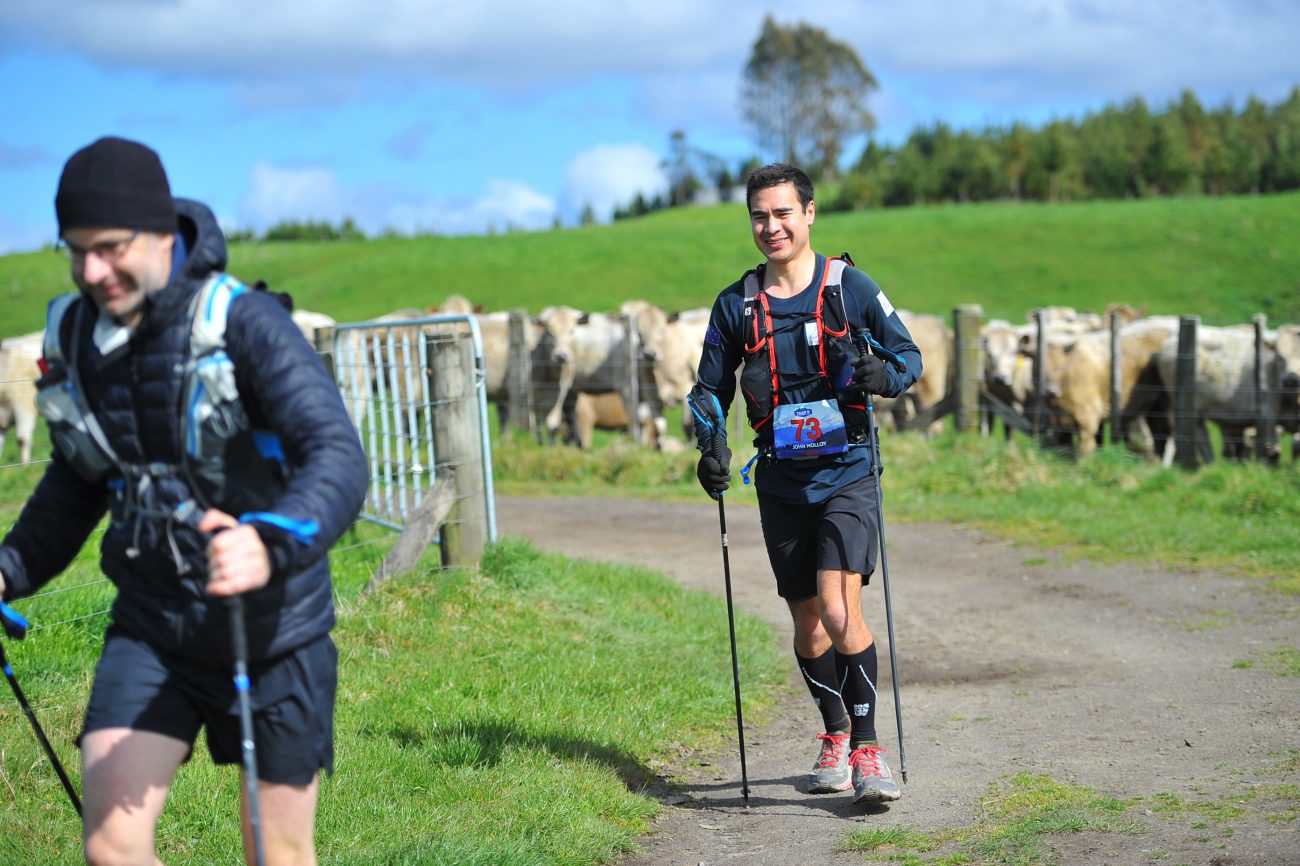
Running past inspired livestock with Dr Rich Newbury (left)
The Taupo Ultramarathon 100km is a beautiful course. I started to struggle from 40km onwards. From 50km, I switched to survival mode and my ‘all day pace’. The dense native bush, deep ravines, wet lands, and intermittent views of Lake Taupo provide a welcome distraction. The sounds of flowing rivers, tuis, and bell birds are soothing. Things can appear pretty foggy during a 100km run but the survival instinct is clear and strong. One foot in front of the other. Next aid station. Seeing other participants persevering and surviving is inspiring. Running from sunrise to sunset, I am vulnerable. The fear of failure drives me. But not as much as the fear of not living. The reds and oranges of dusk are replaced by black sky. Time for darkness and headlights again. However, now it is 8pm instead of 6am. After 14 hours and 27 minutes, the run eventually ends. Although I’ve finished in darkness, the inner self is bright and radiating. By surviving, the human soul is rekindled. Life is enriched. In the days following, your bed is more comfortable. Your breakfast tastes better. You are a better person around people. Seek your start lines. Survive to ‘live’. Be confidently vulnerable. Running is medicine. Join me at my next blog, the Kepler Challenge in December, a favourite of mine!
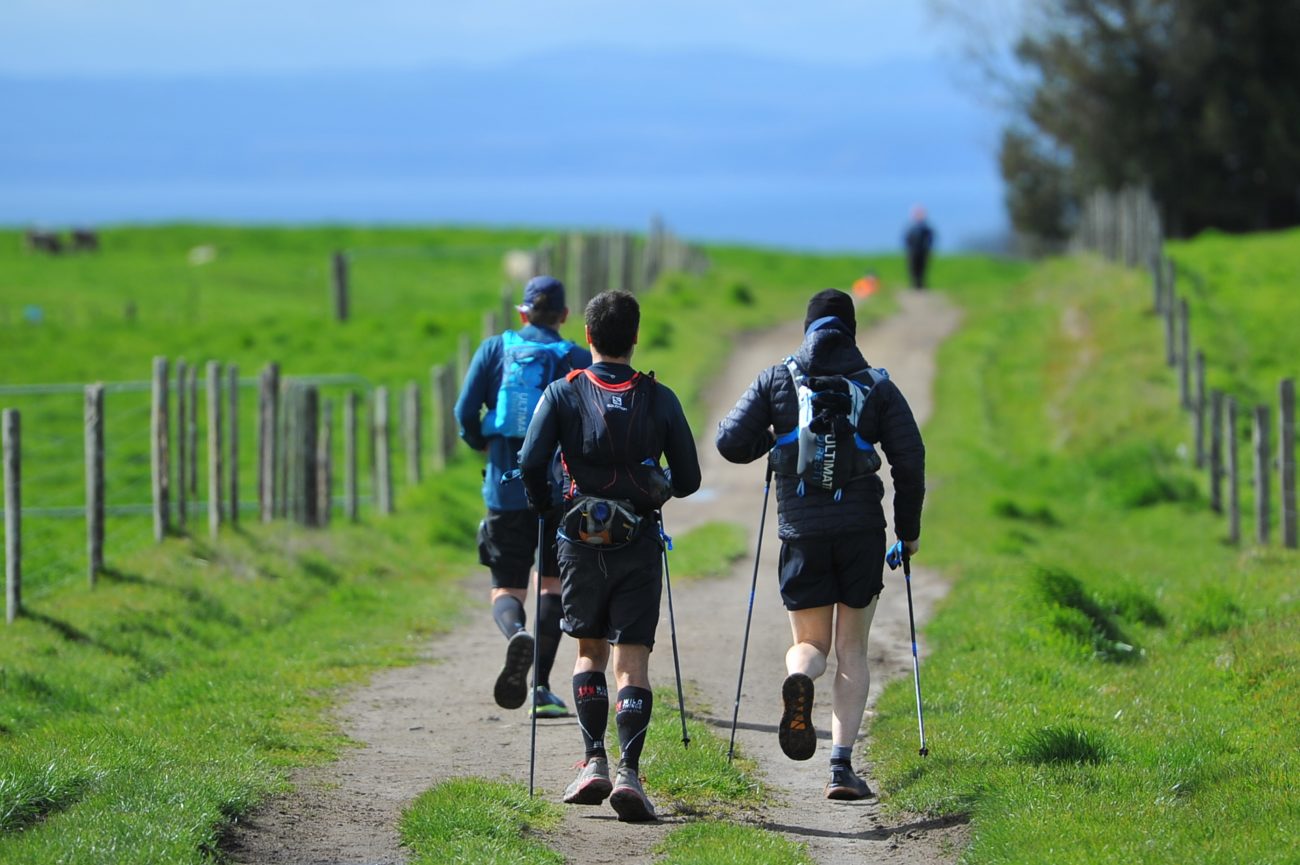
It can be hard keeping up with these two (Dr Andrew Stanley [left] and Dr Rich Newbury [right]) when they’re in a rush to finish before sunset
Running isn’t about winning or losing, it’s neither about glory or achievement, it’s all about not quitting.
Ben Vachon
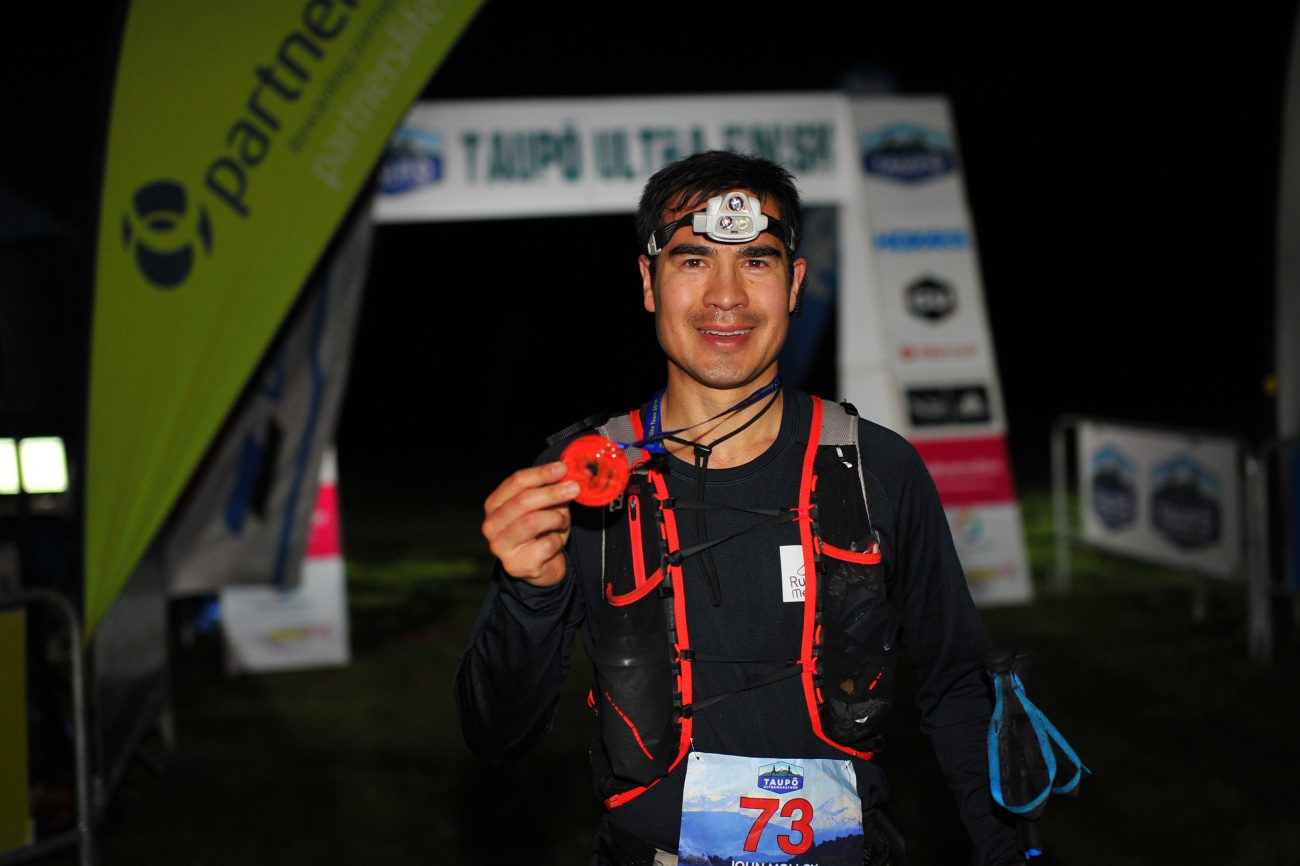
At the finish line having survived the Taupo Ultramarathon 100km
